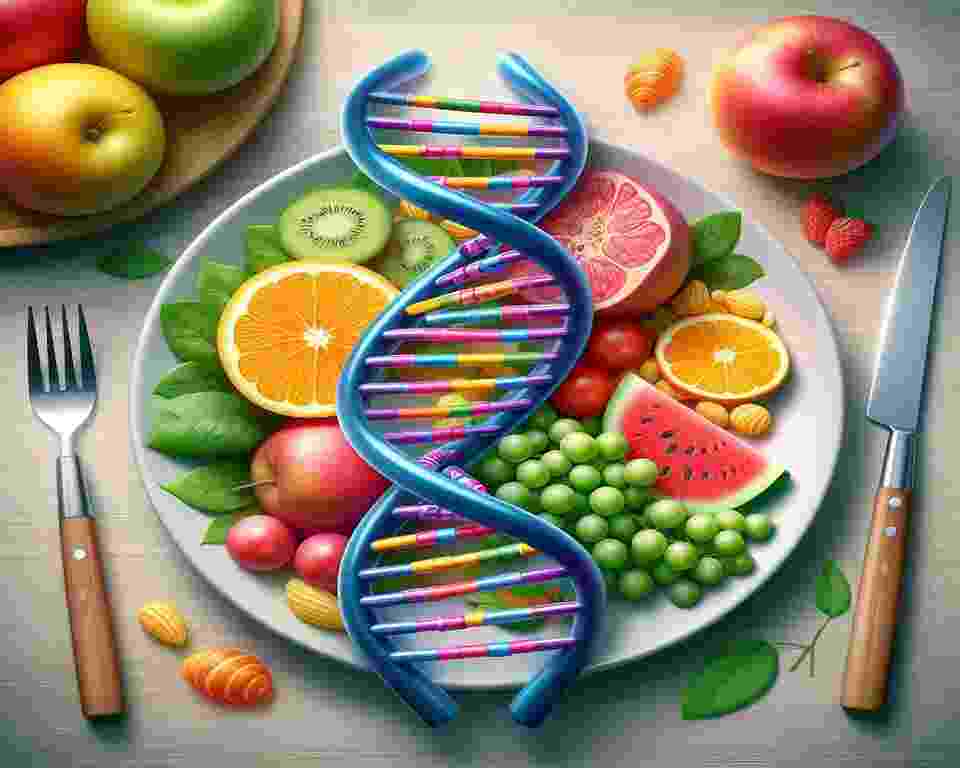
Understanding Nutritional Epigenetics
Defining Nutritional Epigenetics
Nutritional epigenetics is a branch of technological know-how that explores how the food we devour can impact our genetic expression.
The subject is particularly inquisitive about the epigenome, a layer of biochemical reactions that flip genes on and off without converting the DNA sequence itself.
Key Takeaways:
Nutritional epigenetics ought to revolutionize our expertise of food plan and health through revealing the molecular mechanisms by which vitamins affect gene expression.
The Science Behind Nutritional Epigenetics
At the molecular level, dietary epigenetics entail changes together with DNA methylation and histone amendment.
These changes can be brief or lengthy and can also be handed down through generations.
Key Takeaways:
The epigenetic modifications influenced by using nutrients could have lasting outcomes in fitness, doubtlessly affecting destiny generations.
Key Concepts in Nutritional Epigenetics
The concept of “you are what you consume” takes on new meaning in nutritional epigenetics.
It indicates that our nutritional alternatives may have a profound effect on our genetic makeup and typical health.
Key Takeaways:
Nutritional choices can result in epigenetic changes that can affect disorder threat and typical properly-being.
The Impact of Nutrition on Gene Expression
How Diet Influences Your Genes
Diet can affect gene expression through various pathways. For instance, folate and nutritional B12 play a role in DNA methylation, which can affect gene expression.
Key Takeaways:
A balanced weight loss program rich in vital vitamins can promote healthy gene expression and doubtlessly reduce sickness risk.
The Role of Bioactive Food Components in Epigenetics
Bioactive compounds, along with those found in fruits and greens, may have massive epigenetic consequences.
These consist of influencing antioxidant protection mechanisms and modulating gene expression related to metabolism.
Key Takeaways:
Consuming a diet rich in bioactive compounds can aid epigenetic fitness and save you from continual sicknesses.
Nutritional Epigenetics: From Theory to Practice
Nutritional epigenetics has practical programs in personalized vitamins and public fitness. With information on character genetic responses to diet, we can tailor nutritional suggestions for higher fitness outcomes.
Key Takeaways:
Personalized nutrition plans based on epigenetic information can optimize fitness and prevent sickness.
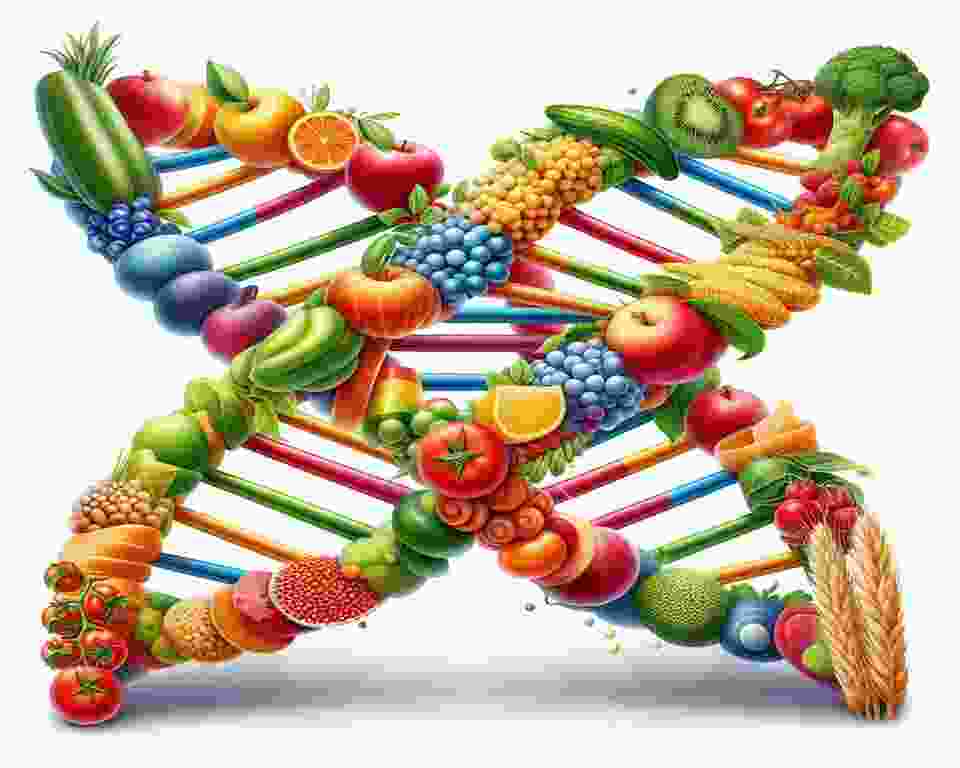
Nutritional Epigenetics: Key Nutrients and Their Impact
Nutrient | Role in Epigenetics | Food Sources |
| Folate (Vitamin B9) | Essentials of DNA methylation and gene expression | Leafy greens (spinach, kale), legumes, citrus fruits |
| Vitamin B12 | Works alongside folate in DNA methylation | Fish (salmon, trout), meat, dairy products |
| Polyphenols | Antioxidant properties: modulate gene expression | Berries, tea, red wine, dark chocolate |
| Omega-3 Fatty Acids | Influence histone modifications and gene regulation | Fatty fish (salmon, mackerel), flaxseeds, walnuts |
The History and Pioneers of Nutritional Epigenetics
Early Observations and Studies
The idea of nutritional epigenetics dates back to early observations of the Dutch Hunger Winter, in which famine led to epigenetic modifications in unborn youngsters, affecting their health later in life.
Key Takeaways:
Historical events have supplied proof for the lengthy-time period effect of nutrition on epigenetics.
Randy Jirtle and Robert A. Waterland: Pioneers within the Field
Randy Jirtle and Robert A. Waterland’s landmark take a look at agouti mice tested for maternal weight loss programs who may want to modify the offspring’s coat color and disorder susceptibility through epigenetic mechanisms.
Key Takeaways:
Pioneering research has proven that maternal nutrition can have epigenetic effects on offspring, influencing their fitness and disease chances.
Nutritional Epigenetics Research and Its Implications
Studying the Interaction Between Diet and Gene Expression
Research into nutritional epigenetics involves analyzing how special diets can cause epigenetic adjustments that can affect ailment results.
Key Takeaways:
Ongoing studies are crucial for information on the complicated relationship between food plan and gene expression.
The Potential of Nutritional Epigenetics in Disease Prevention
Nutritional epigenetics hold promise for preventing sicknesses like cancer, obesity, and diabetes, using editing nutritional patterns to persuade gene expression.
Key Takeaways:
Nutritional epigenetics may want to play a great position in disorder prevention techniques.
Nutritional Epigenetics and Developmental Health
The Effects of Prenatal Nutrition on Gene Function
Prenatal vitamins are important for fetal improvement, and epigenetic changes throughout this era may have lifelong implications for health.
Key Takeaways:
Adequate prenatal nutrition is critical for wholesome epigenetic programming and lengthy-time period fitness.
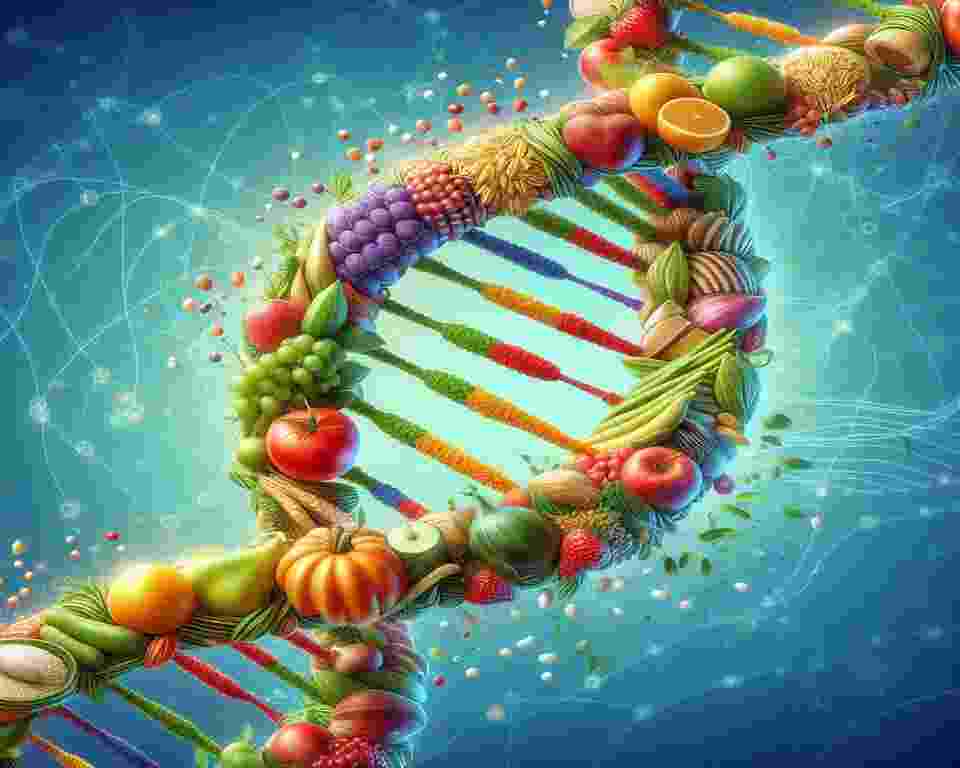
Dietary Methylation Groups and DNA Methylation
Foods rich in methyl donors, such as leafy greens and legumes, can contribute to DNA methylation, an important epigenetic mechanism.
Key Takeaways:
Including methyl-donor-rich foods in the diet can support healthy DNA methylation patterns.
Nutritional Epigenetics in Adult Life
Continued Influence of Nutrition on Epigenetic Changes
Even in adulthood, nutrition continues to play a role in epigenetic modifications, affecting health and disease risk.
Key Takeaways:
Lifelong attention to nutrition is important for maintaining healthy epigenetic profiles.
The Role of Nutrition in Adult Disease Susceptibility
Adult dietary habits can influence the risk of developing diseases such as cancer and heart disease, potentially mediated by epigenetic mechanisms.
Key Takeaways:
Healthy eating habits can reduce the risk of disease through positive epigenetic changes.
Nutritional Epigenetics and Metabolic Health
The Connection Between Diet and Metabolic Gene Regulation
Nutritional epigenetics play a pivotal role in metabolic health. The foods we consume can influence the expression of genes involved in metabolism, potentially affecting our weight, energy levels, and risk of metabolic disorders.
Key Takeaways:
A diet that supports healthy gene expression can be a powerful tool in managing metabolic health and preventing related diseases.
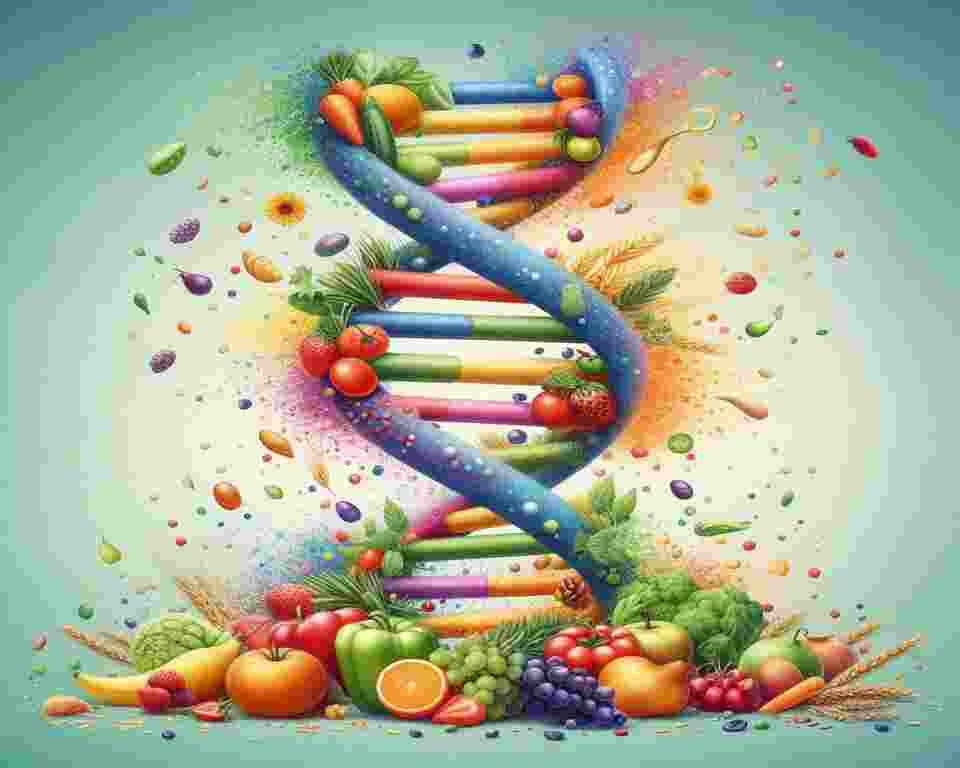
Nutritional Interventions and Epigenetic Modifications
Recent studies suggest that dietary interventions can lead to beneficial epigenetic modifications. For example, calorie restriction has been associated with positive changes in gene expression related to longevity and disease resistance.
Key Takeaways:
Calorie restriction and other dietary interventions can induce epigenetic changes that may enhance health and lifespan.
The Role of Nutritional Epigenetics in Aging
Dietary Patterns and the Aging Process
As we age, our epigenetic patterns change, and nutrition can play a significant role in this process. Diets rich in anti-inflammatory and antioxidant-rich foods may help slow down epigenetic aging.
Key Takeaways:
Anti-inflammatory and antioxidant-rich diets may contribute to healthier aging by influencing epigenetic markers.
Nutrients That Promote Healthy Aging
Certain nutrients have been identified as key players in promoting healthy aging through epigenetic mechanisms. These include vitamins A, C, D, E, and nutrients like selenium and zinc.
Key Takeaways:
Including a variety of nutrients in the diet can support epigenetic health and promote longevity.
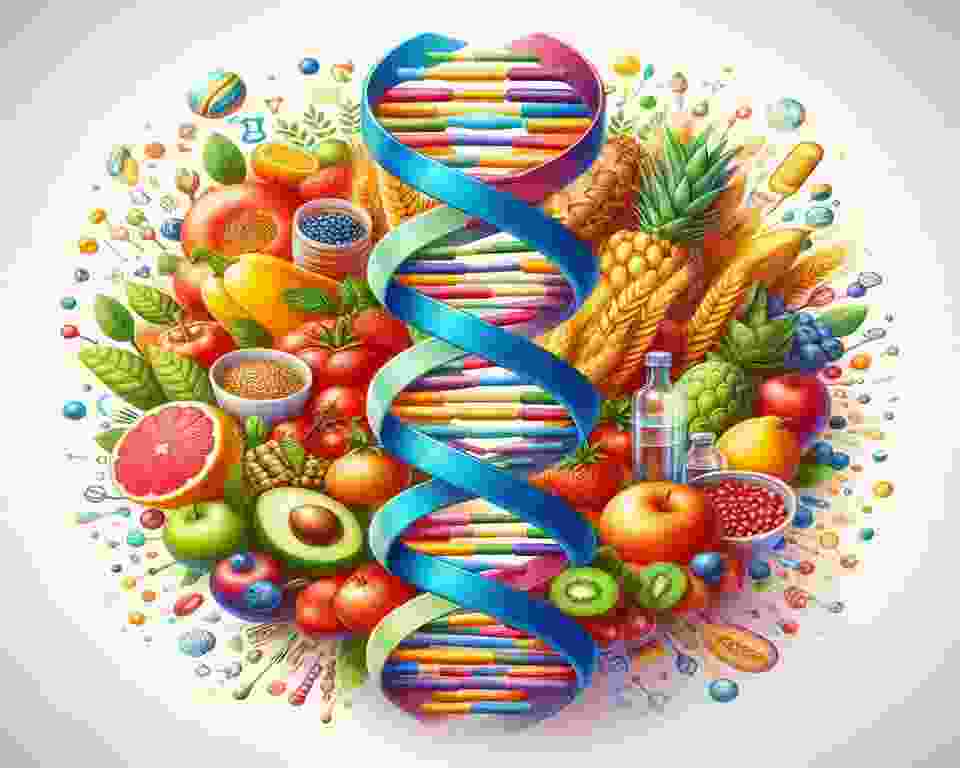
Nutritional Epigenetics and Mental Health
The Diet-Mood Connection
Emerging research indicates that diet can affect mental health through epigenetic mechanisms. Nutrients like omega-3 fatty acids, B vitamins, and probiotics may influence the expression of genes related to mood and cognition.
Key Takeaways:
A diet that supports brain health may have a positive impact on mental well-being through epigenetic pathways.
Nutritional Psychiatry: A New Frontier
Nutritional psychiatry is an evolving field that looks at the role of diet in mental health. It suggests that by modifying our diet, we can alter our brain chemistry and potentially improve mental health outcomes.
Key Takeaways:
Nutritional psychiatry holds promise for new treatment approaches to mental health conditions through dietary and epigenetic interventions.
Personalized Nutrition and Epigenetics
Tailoring Diet to Your Genes
Personalized nutrition is an approach that tailors dietary recommendations to an individual’s genetic profile.
Nutritional epigenetics are at the heart of this personalized approach, offering insights into how different people may respond to the same foods.
Key Takeaways:
Personalized nutrition based on epigenetic information can lead to more effective dietary recommendations.
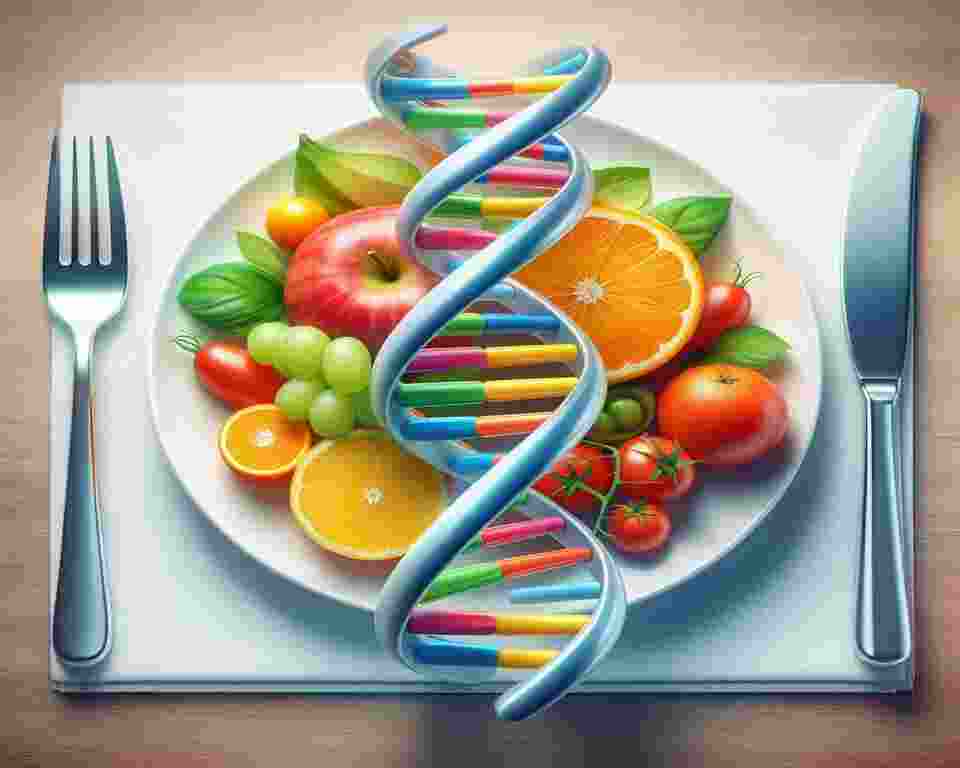
The Future of Diet and Health
The integration of nutritional epigenetics into healthcare could transform how we approach diet and disease. With advances in technology, we may soon see personalized dietary plans becoming a standard part of medical care.
Key Takeaways:
The future of nutrition and healthcare is likely to be heavily influenced by our growing understanding of epigenetics.
Ethical Considerations in Nutritional Epigenetics
Privacy and Genetic Information
As nutritional epigenetics involve genetic data, there are important privacy considerations. Ensuring the confidentiality and ethical use of genetic information is paramount.
Key Takeaways:
Protecting genetic privacy is essential as we advance in the field of nutritional epigenetics.
Access to Personalized Nutrition
There is also the question of access to personalized nutrition services. Ensuring that these advancements benefit everyone, regardless of socioeconomic status, is a challenge that must be addressed.
Key Takeaways:
Equitable access to personalized nutrition services is an ethical imperative in the field of nutritional epigenetics.
Who Defined Epigenetics and Why Is It Important?
The term “epigenetics” was first coined by Conrad Waddington in the 1940s. It’s important because it explains how environmental factors like diet can affect gene expression without altering the DNA sequence.
Key Takeaways:
Understanding who defined epigenetics and its importance can provide insight into the field’s development and relevance.
Conclusion:
In conclusion, nutritional epigenetics offers a fascinating glimpse into how our diet can influence our genetic blueprint.
It underscores the importance of dietary choices in shaping our health and disease risk.
As research continues to unravel the complex interactions between nutrients and genes, we move closer to personalized nutrition strategies that can lead to better health outcomes for individuals and populations alike.
FAQs on Nutritional Epigenetics
Q: Can what I eat affect my DNA?
Yes, while it doesn’t change the DNA sequence, your diet can influence how your genes are expressed.
Q: Is nutritional epigenetics relevant to public health?
It has the potential to inform dietary guidelines and public health policies.
Q: How can nutritional epigenetics impact future generations?
Epigenetic changes influenced by nutrition can be passed down, affecting the health of future generations.
Q: Can nutritional epigenetics help prevent diseases?
Yes, by understanding how diet affects gene expression, we can potentially prevent or mitigate diseases.
Q: Can changes in my diet lead to permanent genetic changes?
Diet can lead to epigenetic changes, which are reversible and do not alter the DNA sequence itself.
Q: Are the effects of nutritional epigenetics seen immediately?
The effects can vary; some may be immediate, while others may take longer to manifest.





